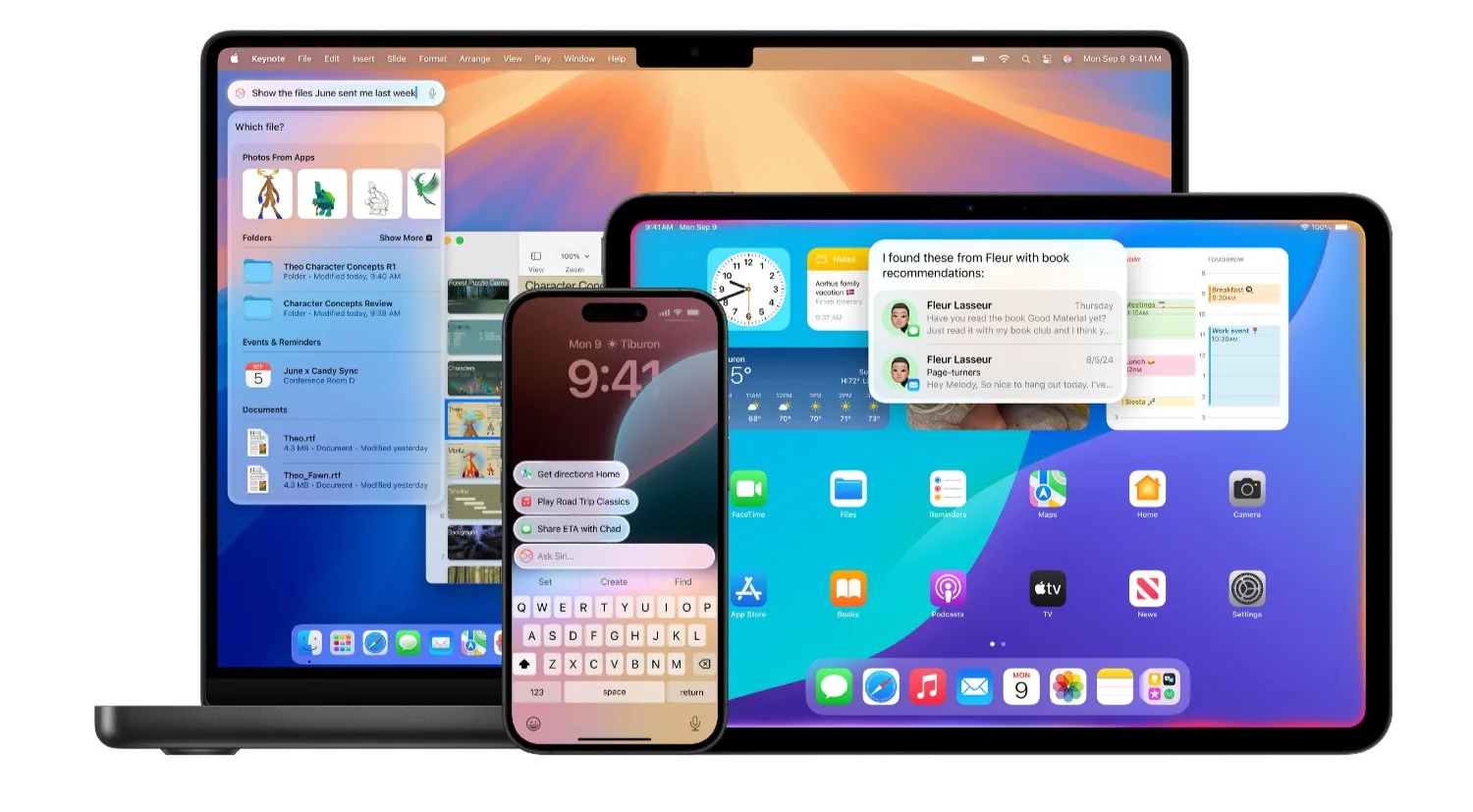Het is alweer een paar weken geleden dat het nieuws naar buiten kwam dat Siri-opnames door inhuurkrachten worden beluisterd. Kort daarop stopte Apple met het beluisteren van de gesprekken, waarna de betrokken medewerkers werden ontslagen. Later bleek dat de identiteit van gebruikers te herleiden was uit de Siri-opnames. Het kwam allemaal erg ongelegen uit voor Apple, het bedrijf dat zich zo voorstaat op het beschermen van je privacy. Een officiële reactie liet nog op zich wachten, maar die is er nu. In een statement legt Apple uit wat ‘grading’ precies inhoudt, hoe het zit met de privacy van Siri-gesprekken en wat er de komende tijd gaat veranderen.
Apple verwijst voor meer informatie naar deze pagina over Siri Privacy and Grading.
In de verklaring legt Apple uit, dat Siri zo is ontworpen, dat je privacy wordt beschermd. Zoveel mogelijk bewerkingen worden op het toestel zelf uitgevoerd. Ook gebruikt Siri zo weinig mogelijk data als nodig is om goede resultaten te kunnen leveren. En met een willekeurig ID wordt geprobeerd om geen rechtsteekse koppeling te maken tussen de opnames en je Apple ID of telefoonnummer. Maar dat is niet genoeg, beseft Apple nu ook. Vandaar dat ze een aantal wijzigingen aankondigen.
Dit gaat Apple eraan doen
- Apple gaat audio-opnames van Siri niet meer bewaren. Wel zullen computer-gegenereerde transcripties worden gemaakt om Siri te verbeteren.
- Gebruikers krijgen met opt-in de mogelijkheid om mee te doen aan het verbeteren van Siri. Doe je mee, dan kun je op elk moment weer stoppen. De schakelaar hiervoor zal in een toekomstige iOS-update beschikbaar zijn.
- Voortaan zullen alleen Apple-medewerkers luisteren naar de audio-opnames. Er zullen dus geen inhuurkrachten meer worden ingeschakeld bij externe bedrijven. Dit laatste was voor veel mensen een onaangename verrassing, omdat Apple geen screening doet van inhuurkrachten. Ook zou het verloop onder de medewerkers groot zijn, waardoor je opname bij een willekeurige persoon kan terechtkomen. Medewerkers zullen elke opname wissen waarvan duidelijk is dat het geen Hé Siri-trigger was.
Let op, dat als je aangeeft niet mee te willen doen aan het opslaan van Siri-opnames, dat er toch computergegenereerde uitgeschreven teksten worden gemaakt van wat Siri heeft gehoord. Op die manier kunnen stukjes van privégesprekken toch nog in handen komen van medewerkers. De opt-out geldt immers alleen voor audio-fragmenten.
Deze tekstfragmenten blijven zes maanden bewaard. Wil je niet dat er transcripties van je Siri-opnames worden gemaakt, dan is er een manier om dit te voorkomen: door Siri en dicteren volledig uit te schakelen via de instellingen.
Hieronder kun je de verklaring van Apple lezen, die op het moment van schrijven nog niet in een Nederlandse versie beschikbaar is.
APPLE STATEMENT
August 28, 2019
Improving Siri’s privacy protectionsAt Apple, we believe privacy is a fundamental human right. We design our products to protect users’ personal data, and we are constantly working to strengthen those protections. This is true for our services as well. Our goal with Siri, the pioneering intelligent assistant, is to provide the best experience for our customers while vigilantly protecting their privacy.
We know that customers have been concerned by recent reports of people listening to audio Siri recordings as part of our Siri quality evaluation process — which we call grading. We heard their concerns, immediately suspended human grading of Siri requests and began a thorough review of our practices and policies. We’ve decided to make some changes to Siri as a result.How Siri Protects Your Privacy
Siri has been engineered to protect user privacy from the beginning. We focus on doing as much on device as possible, minimizing the amount of data we collect with Siri. When we store Siri data on our servers, we don’t use it to build a marketing profile and we never sell it to anyone. We use Siri data only to improve Siri, and we are constantly developing technologies to make Siri even more private.
Siri uses as little data as possible to deliver an accurate result. When you ask a question about a sporting event, for example, Siri uses your general location to provide suitable results. But if you ask for the nearest grocery store, more specific location data is used.
If you ask Siri to read your unread messages, Siri simply instructs your device to read aloud your unread messages. The contents of your messages aren’t transmitted to Siri’s servers, because that isn’t necessary to fulfill your request.
Siri uses a random identifier — a long string of letters and numbers associated with a single device — to keep track of data while it’s being processed, rather than tying it to your identity through your Apple ID or phone number — a process that we believe is unique among the digital assistants in use today. For further protection, after six months, the device’s data is disassociated from the random identifier.
In iOS, we offer details on the data Siri accesses, and how we protect your information in the process, in Settings > Siri & Search > About Ask Siri & Privacy.
How Your Data Makes Siri Better
In order for Siri to more accurately complete personalized tasks, it collects and stores certain information from your device. For instance, when Siri encounters an uncommon name, it may use names from your Contacts to make sure it recognizes the name correctly.
Siri also relies on data from your interactions with it. This includes the audio of your request and a computer-generated transcription of it. Apple sometimes uses the audio recording of a request, as well as the transcript, in a machine learning process that “trains” Siri to improve.
Before we suspended grading, our process involved reviewing a small sample of audio from Siri requests — less than 0.2 percent — and their computer-generated transcripts, to measure how well Siri was responding and to improve its reliability. For example, did the user intend to wake Siri? Did Siri hear the request accurately? And did Siri respond appropriately to the request?
Changes We’re Making
As a result of our review, we realize we haven’t been fully living up to our high ideals, and for that we apologize. As we previously announced, we halted the Siri grading program. We plan to resume later this fall when software updates are released to our users — but only after making the following changes:
- First, by default, we will no longer retain audio recordings of Siri interactions. We will continue to use computer-generated transcripts to help Siri improve.
- Second, users will be able to opt in to help Siri improve by learning from the audio samples of their requests. We hope that many people will choose to help Siri get better, knowing that Apple respects their data and has strong privacy controls in place. Those who choose to participate will be able to opt out at any time.
- Third, when customers opt in, only Apple employees will be allowed to listen to audio samples of the Siri interactions. Our team will work to delete any recording which is determined to be an inadvertent trigger of Siri.
Apple is committed to putting the customer at the center of everything we do, which includes protecting their privacy. We created Siri to help them get things done, faster and easier, without compromising their right to privacy. We are grateful to our users for their passion for Siri, and for pushing us to constantly improve.
Taalfout gezien of andere suggestie hoe we dit artikel kunnen verbeteren? Laat het ons weten!
Het laatste nieuws over Apple van iCulture
- ‘Apple overweegt eigen AI-modellen aan de kant te zetten, wil OpenAI of Anthropic voor slimmere Siri’ (01-07)
- Apple gaat vaker functies later (of helemaal niet) in de EU uitbrengen: dit is waarom (01-07)
- 20 jaar Apple Podcasts: dit zijn de beste shows (volgens Apple) (27-06)
- Inhaalslag voor AI: 'Apple overweegt overname Perplexity AI' (23-06)
- Apple laat je de snelheid voelen met haptische trailer van F1: The Movie (13-06)
Siri
Siri is Apple's eigen spraakassistent en hier lees je er alles over. Siri kan informatie voor je opzoeken, taken uitvoeren en apparaten bedienen. Veel apps werken ook samen met Siri en je kunt met de Opdrachten-app je eigen Siri-opdrachten maken. Je vindt hier onze belangrijkste artikelen.

- Alles over Siri
- Hé Siri gebruiken
- Siri opnieuw instellen en trainen
- Grappige Siri-antwoorden
- Siri werkt niet: 6 oorzaken en oplossingen
- Siri op de Mac gebruiken
- Apps openen met Siri
- Zo werken Siri Shortcuts en de Opdrachten-app
- Siri in CarPlay makkelijker gebruiken
- Siri kan dierengeluiden afspelen
- Navigeren met Siri
- Alles over de proactieve Siri




Pffff ook Apple dus
Pffff. Gewoon doorgaan dus.
Google, Apple, Facebook, Amazon en nog vele andere. Geen haar beter👍😂 te grappig ook als je hun Keynotes er naast zet…. ach was ook te verwachten.
Het analyseren van de gesprekken is nodig, hoe verwacht je anders dat de producten beter worden.
Bij de andere gebruiken ze deze data ook voor marketing doeleinden, en van wat ik ervan weet is dit bij Apple (nog) niet.
Wat ik wel verwacht is dat ze mijn data als een goede huisvader behandelen, ik ben blij met de nieuwe maatregelen, zo verwacht ik het ook van Apple.
Alles wat voor ‘Hey Siri’ gezegd wordt zou nooit je toestel mogen verlaten.
Het kan wel nodig zijn, maar ze hadden er transparant over moeten zijn. DAT is wat ik ze verwijt. Als je een grote mond hebt dat je privacy belangrijk vind en vervolgens dit soort praktijken erop nahoud verdien je gewoon alle commotie.
Dit hadden ze ook gewoon eerder moeten doen. Ik had ze zelfs wel willen helpen met Siri verbeteren. Zo transparant als ze zijn om bij iedere update opnieuw toestemming te vragen, zo transparant hadden ze nu ook moeten zijn.
@Diederik: Dat doet het ook in 99% van de gevallen niet. Er zijn altijd false positives, maar lang niet zo erg als bij Google. Daar wordt juist ontzettend veel data doorgestuurd, omdat Google Assistent bij het minste of geringste denkt dat je OK Google zegt.
Ik ben zo blij met Siri en gebruik het elke dag. Ik kan niet wachten tot Siri weer de beste stemassistent is. Daarom zal ik graag mijn opnames delen met Apple. Kan
@Dimme: Ik ben het 100% met jou eens. Ik heb nog geen enkel goed argument gehoord waarom we Apple niet zouden moeten vertrouwen?